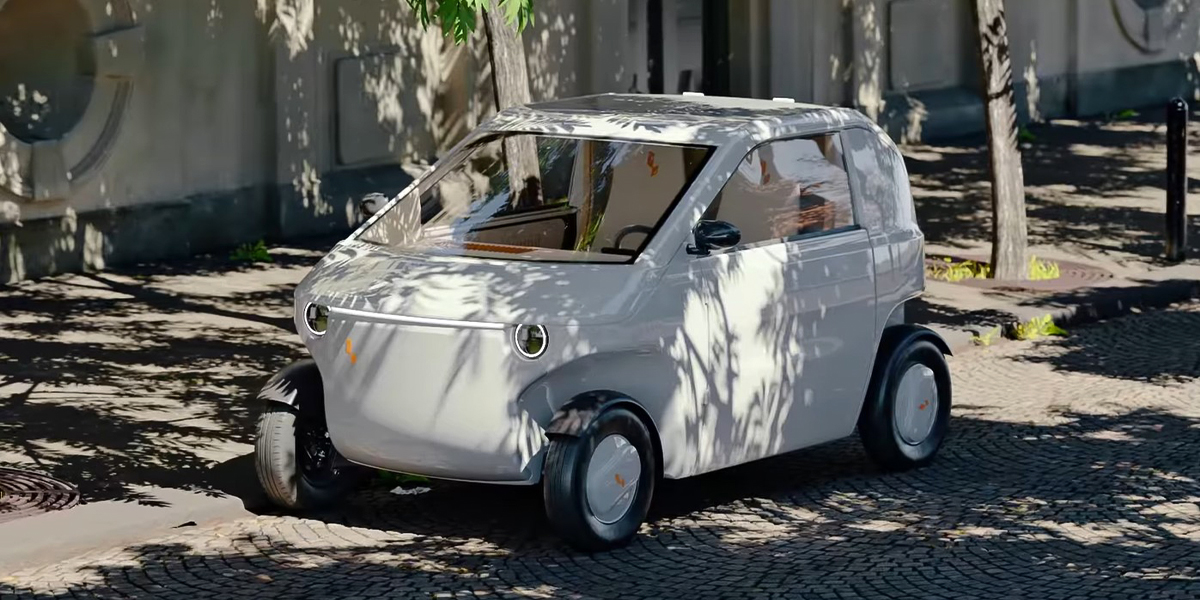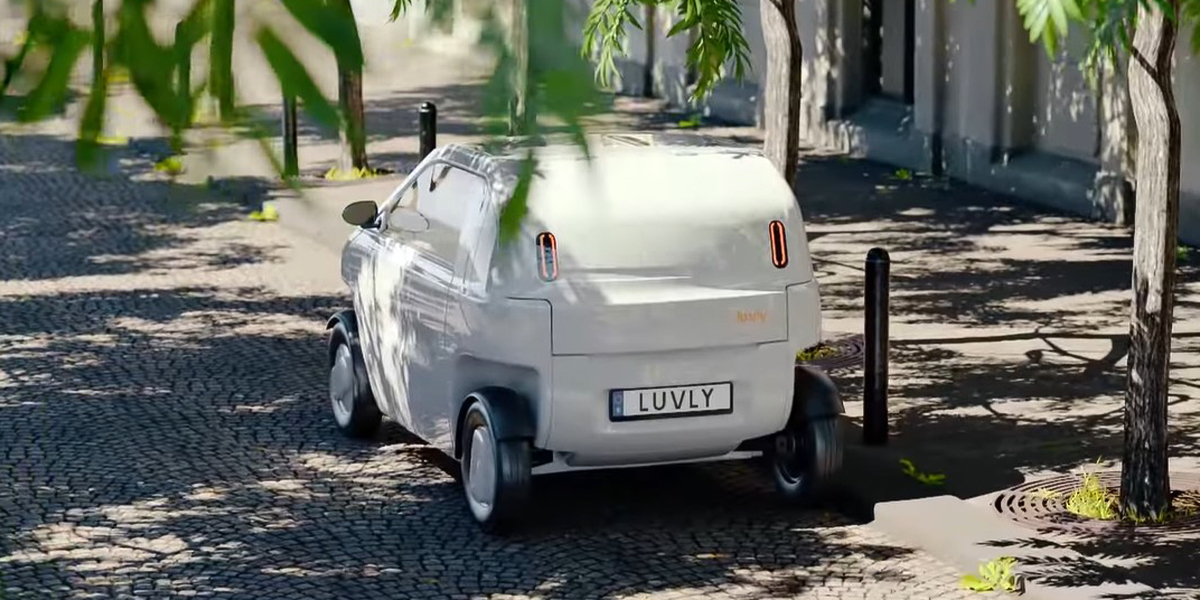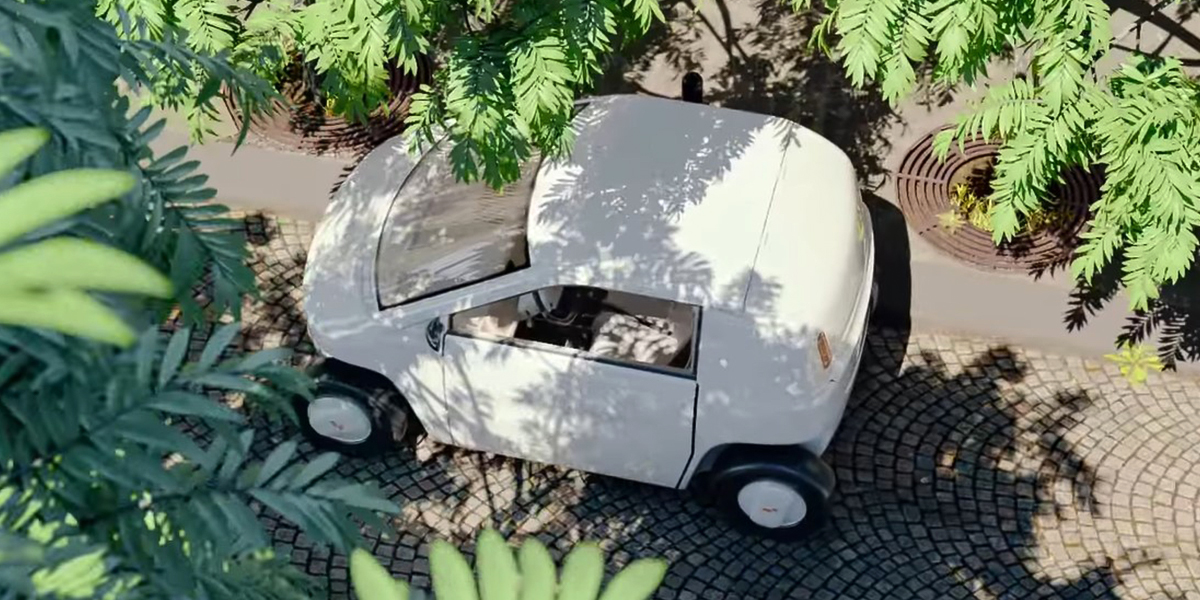Luvly labels its cars as LUVs, standing for Light Urban Vehicles. The new Luvly O weighs just 380kg (837 pounds), about a fifth of what a Tesla weighs, and is sustainably designed for city use.
The battery is 6.4kWh and comes in two separate units that can be removed. This means that if you live in a city apartment with no easy access to a charging point you can simply take the battery out and charge it at home.
A removable battery also opens up the possibility of battery swapping which could be beneficial in urban car sharing schemes.

The O’s range is 100km (62 miles) which is enough for trips across the city and a top speed of 90km/h (55mph) is impressive for a microcar considering the Citroen Ami allows just 28mph.
With the mention of flat-packing and the microcar’s lightweight structure, you’d be forgiven for thinking that the Luvly O might not be the safest vehicle to drive. Luvly says that its sandwich-structure composite safety shell and energy-absorbing foam materials will keep occupants well-protected and is top of the range for this category of vehicle.
It is expected that the O will go on sale for around €10,000 (£8,500). That’s far cheaper than the majority of EVs on the market which could make it a tempting option for those who live in the city and need a sustainable runaround.

Luvly's proposed production and shipping methods bear similarities to a certain Swedish furniture retailer. Rather than manufacturing vehicles in a central factory and transporting them fully assembled worldwide, Luvly has pioneered a flat-pack shipping approach for vehicle parts.
This method allows the components for up to 20 cars to be packed together within a single shipping container, as opposed to relying on specialized car carriers or squeezing 4 fully assembled cars into 1 container.
Unlike IKEA furniture, these vehicles will not be assembled by end users. Instead, the parts are assembled in micro factories strategically located within individual sales regions. It’s said that one micro factory spanning 2000 square meters could serve a territory equivalent to the size of Sweden.

There are many advantages to this flat-packing approach. Micro factories have smaller footprints, quicker deployment timelines, and reduced capital expenditures compared to traditional production facilities.
Although Luvly faces formidable competition in Europe from established brands such as Citroen and Renault, the company believes its flat-pack and sandwich composite methods give it a competitive edge over rivals.
Luvly also sees significant growth potential in the market and hopes to persuade drivers to embrace smaller, more efficient vehicles in the future.








